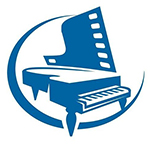Many years ago, How Much Do You Charge was the top question I received when answering an inquiry. With patience and a clear curriculum outline of my studio teaching, however, I have gradually learned to offer parents an answer that is most revealing of the quality of my studio and my expectations. I have found that answering the question with a brief outline of what your music program includes is the key to success. Often teachers themselves break down their teaching fees to how many lessons in a month or year. This approach fails to include
- Recitals–the planning, preparing, program development, and time (and fees) necessary to offer nice programs throughout the year.
- Festivals, Competitions, Auditions–time filling out applications, time required to be on site of the audition so your students can participate in them.
- Music shopping and curriculum (repertoire) development
- Phone time–talking or emailing parents, trouble shooting, etc.
The above list only scratches the surface of the hours and time spent working in your studio, and that, my colleagues needs to be included in your overall assessment of how much you charge. When I answer an inquiry I immediately tell them that my year around program includes;
- 36 scheduled lessons during the school year. 38 are booked to allow 2 weeks of sick leave/personal days or myself.
- 5 summer lessons, but students may have 2 additional bonus lessons if they are around and available. This cushions the schedule well for an entire calendar year.
- 3 recitals
- festivals and competitions as appropriate
- any group classes I hold to prepare for performances
This is a Five Point Plan. Not too much for the parent to absorb. For those services, I charge X so much per quarter, collected the first of July, Oct., Jan. and April. Period. No breakdown of fees and “per lesson” or “per month”. Perhaps you feel in your area or situation you must collect monthly. That’s great! But, I ask you to consider again making it a year around plan–12 equal payments. Your studio will benefit from more consistent attendance, much less “changing their minds in September” after you have held the spot all summer, etc.
What if a student refuses to come during the summer? OK, I tell them, but I cannot hold their fall spot if they are absent all summer. I will release their slot for the fall and they can call August 15th to see what is left. 9 times out of 10 if the family values you as a teacher they will find a solution. In my area a number of students often go overseas for one month during the summer. My lesson structure still works for them. In the rare instance where someone is truly out of town the entire summer, you have a choice to make. Are they a good student? Someone you would like to keep? Then perhaps on that summer you offer to reduce the fee to allow for that summer leave of absence PROVIDED they have paid you up front for whatever tuition or registration is due by the time they return (perhaps the first month back in advance just to cover you should they not come back.) If they are not willing to do that then you move forward to answer the phone and fill that spot.
Sounds harsh? Not at all. You cannot be expected to hold these spots for no income then hope they return. You are running a business. Any other setting outside of group Karate or Dance would do the same thing. One last thing to cover on this topic: What if you feel you cannot do this because you need more students? The answer is to get out there –advertise, promote your studio and get your phone ringing. When the phone is ringing you have options. Low student loads make you vulnerable. Perhaps you need to drive to a larger city/town two days a week to fill your schedule in a more robust area. Maybe that’s not as convenient for you, but consider your financial bottom line. Building your business is in the end your responsibility.
Develop a three year plan that moves you more closely toward the financial goal and studio quality you would like to achieve. What steps do you need to take? Plan how much you can accomplish by this fall in workable, realistic steps. Always look ahead and decide how successful you want to be and plan accordingly. Look around you–outside the box. Look for ways to distinguish yourself in your area as one of the more sought after teachers. What can set you apart–your education, playing/performance ability, quality and strength of your program? The greatest danger that will drain you emotionally and physically is drifting from year to year doing nothing different but expecting a different result. Consider hiring a mentor in your area or Skyping with my mentor program. We can discuss the details you feel are holding you back from having the quality and security you would like to achieve!
Now it the time to consider all these aspects of your studio. Stay focused and energized and watch your studio grow!
Musically yours
Carol Ann
